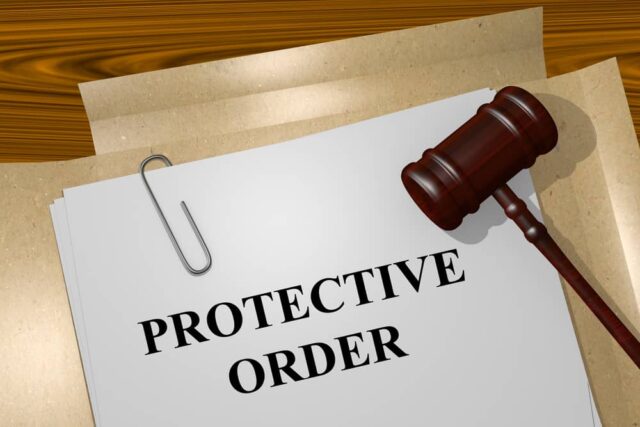
Domestic assault is a grave crime that involves violence or the threat of violence against a family member or a person with whom the offender shares an intimate relationship. It can take various forms, including physical, emotional, verbal, and financial abuse.
Understanding the definition and types of domestic assault is crucial as it sets the foundation for your court case.
When facing domestic assault charges, it is essential to take them seriously. Even if you believe the allegations are unfounded, the legal system treats these cases with severity due to their potential for significant harm.
Taking these charges lightly can have serious consequences, including imprisonment, fines, restraining orders, and damage to your personal and professional life.
An overview of the legal consequences for domestic assault will help you comprehend the potential outcomes. Penalties vary depending on the severity of the offense, previous criminal history, and the state’s laws.
Possible consequences may include probation, mandatory anger management classes, loss of firearm rights, and in severe cases, imprisonment.
Securing Legal Representation

Hiring a qualified attorney is a critical step in preparing for a domestic assault court case. An experienced lawyer specializes in criminal defense and will have a deep understanding of the complexities involved in domestic assault cases.
Finding the right lawyer for your case requires careful research. Look for attorneys with a proven track record in handling domestic assault cases. Seek recommendations from trusted sources or consult local bar associations.
Online reviews and testimonials can also offer insights into an attorney’s reputation and client satisfaction.
Several factors should be considered when selecting legal representation. The attorney’s experience, communication skills, fee structure, and level of dedication are essential considerations.
Additionally, ensure that the attorney you choose has a supportive and empathetic approach, as domestic assault cases can be emotionally taxing.
Gathering Evidence and Documentation

In a domestic assault case, the strength of your evidence can significantly impact the outcome. Types of evidence that can support your case include photographs of injuries, text messages, emails, or voicemails indicating a lack of intent to harm, and eyewitness accounts.
Collecting and preserving crucial documentation can be vital, as evidence can be lost or degraded over time.
Witnesses play a crucial role in corroborating your side of the story. Encourage witnesses to provide written statements detailing what they observed during the incident. These statements can be invaluable during the trial.
Building a Strong Defense Strategy

A strong defense strategy is essential to protect your rights and present your case effectively. One common defense in domestic assault cases is self-defense, where the accused claims to have acted to protect themselves or others from harm.
Your domestic assault lawyer will help you understand the elements required to establish a valid self-defense claim.
Exploring other possible defenses is also crucial. Your attorney may consider arguing mistaken identity, lack of evidence, or challenging the credibility of the prosecution’s witnesses. The defense strategy should be tailored to the specific circumstances of your case.
Your attorney will play a pivotal role in crafting a robust defense strategy. They will analyze the evidence, identify potential weaknesses in the prosecution’s case, and work diligently to protect your rights throughout the legal process.
Navigating the Legal Process

Understanding the court proceedings and timeline is vital for a successful defense. Domestic assault cases typically go through several stages, including arraignment, pre-trial motions, trial, and potential sentencing if convicted.
During the trial, you can expect both the prosecutor and defense attorney to present their arguments, call witnesses, and introduce evidence. Understanding the roles of both sides in court will help you prepare for what to expect during the proceedings.
Preparing for Courtroom Testimony

Preparing for courtroom testimony is essential to present a coherent and compelling case. Honesty and consistency in your statements are paramount, as any discrepancies can be exploited during cross-examination.
Work closely with your attorney to rehearse your testimony. They will guide you on how to present the facts clearly and concisely, ensuring that your account aligns with the evidence and defense strategy.
Cross-examination can be challenging, as the prosecutor may attempt to undermine your credibility or exploit inconsistencies in your statements. Your attorney will equip you with strategies to handle cross-examination effectively, remaining composed and sticking to the truth.
Addressing Emotional and Psychological Challenges

The legal process in a domestic assault case can take a toll on your emotional and psychological well-being. Coping with stress and anxiety during this time is essential for maintaining your mental health.
Seeking professional support and counseling can be immensely helpful. Therapists or support groups specializing in trauma can provide valuable assistance in processing emotions and developing coping strategies.
It’s important to understand how emotions can impact your case. Emotional outbursts or erratic behavior in court can be detrimental to your defense. Your attorney can help you manage emotions, ensuring that you present yourself in a composed and collected manner.
Considering Alternative Dispute Resolution

In some cases, alternative dispute resolution methods like mediation or plea bargains may be considered as an alternative to a trial. These methods aim to find a resolution outside of court, potentially resulting in reduced charges or penalties.
Understanding the options available and the pros and cons of alternative dispute resolution is essential. Your attorney can advise you on whether pursuing these routes aligns with your best interests and the specifics of your case.
For those new to the process, Personal Injury Mediations Explained for Beginners can be a valuable resource when preparing for a domestic assault court case.
Dealing with Protective Orders and No-Contact Orders

If you’re facing domestic assault charges, the court may issue protective orders or no-contact orders. These are meant to protect the alleged victim from further harm. It is crucial to understand the implications of these orders and strictly comply with them.
A protective order can have significant impacts on your personal and professional life. It may restrict your access to your home, possessions, or shared children. Violating the order can result in severe consequences, including further criminal charges.
Preparing for Sentencing

In the unfortunate event of a guilty verdict, it’s essential to be prepared for the potential consequences. Sentencing for domestic assault convictions can include fines, probation, mandatory counseling for anger management classes, and even imprisonment.
Strategies for mitigating sentencing factors can make a difference. Your attorney can present evidence of rehabilitation efforts, community involvement, or remorse, which may lead to a more lenient sentence.
After sentencing, you may have post-sentencing requirements such as probation or counseling. Complying with these requirements is essential for a successful rehabilitation process.
Moving Forward After the Court Case

Regardless of the verdict, it’s crucial to understand the potential outcomes and their implications. Acquittal or conviction, the case’s resolution marks the beginning of a new chapter.
Steps to take after the case involve addressing any legal obligations and working towards rehabilitation. Seeking counseling or therapy can aid in personal growth and prevent future incidents.
Moving forward after a domestic assault case requires rebuilding relationships, learning from the experience, and committing to positive change. By taking responsibility for your actions and actively seeking personal growth, you can create a brighter future for yourself and others involved.
Legal Updates and Changes
Staying informed about legal updates and changes is crucial for anyone facing domestic assault charges. Domestic assault laws and legal procedures can vary from one jurisdiction to another, and they may evolve over time. Being aware of these updates ensures that you are well-prepared to navigate your case effectively.
Legislative changes can impact the severity of penalties, available defenses, and even the admissibility of certain evidence in court. For instance, a recent change in the law might provide alternative sentencing options for first-time offenders or offer diversion programs focused on rehabilitation rather than punitive measures.
By keeping abreast of legal developments, you can work closely with your attorney to explore all available options and strategies tailored to the current legal landscape. This proactive approach can make a significant difference in the outcome of your case and help you make informed decisions about whether to file a lawsuit against your abuser or pursue alternative resolutions.
Restorative Justice
In specific domestic assault cases, restorative justice programs offer an alternative path toward resolution. These programs emphasize repairing the harm caused by the offense and promoting communication and reconciliation between the offender and the victim.
Engaging in restorative justice can be a transformative experience for both parties involved. It provides an opportunity for open dialogue, understanding, and the possibility of making amends. Victims may find closure and empowerment through actively participating in the process, while offenders have a chance to take responsibility for their actions and work towards making restitution.
Exploring restorative justice options, if deemed appropriate, can lead to a more constructive and healing outcome compared to a traditional legal battle. However, it’s essential to work closely with legal professionals to ensure that all parties’ rights and interests are protected throughout the process.












